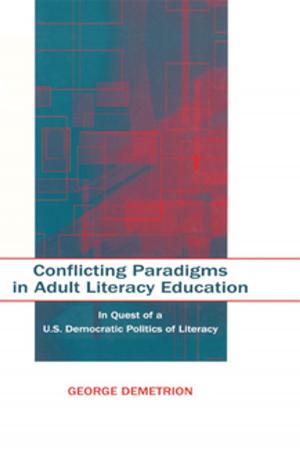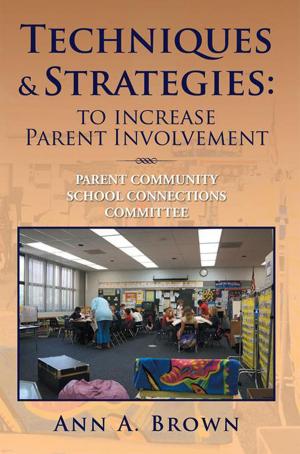Ordinary Resurrections
Children in the Years of Hope
Nonfiction, Social & Cultural Studies, Social Science, Sociology, Urban, Reference & Language, Education & Teaching| Author: | Jonathan Kozol | ISBN: | 9780307815880 |
| Publisher: | Crown/Archetype | Publication: | February 8, 2012 |
| Imprint: | Crown | Language: | English |
| Author: | Jonathan Kozol |
| ISBN: | 9780307815880 |
| Publisher: | Crown/Archetype |
| Publication: | February 8, 2012 |
| Imprint: | Crown |
| Language: | English |
In a stirring departure from his earlier work, Jonathan Kozol has written his most personal and hopeful book to date, an energized and unexpected answer to the bleakness of Death at an Early Age, the prize-winning classic that he published more than 30 years ago.
Like his most recent book, Amazing Grace, this work also takes place in New York's South Bronx; but it is a markedly different book in mood and vantage point, because we see life this time through the eyes of children, not, as the author puts it, from the perspective of a grown-up man encumbered with a Harvard education. Here, too, we see devoted teachers in a good but underfunded public elementary school that manages, against all odds, to be a warm, inviting, and protective place; and we see the children also in the intimate religious setting of a church in which they are watched over by the vigilant grandmothers of the neighborhood and by a priest whose ministry is, first and foremost, to the very young.
A work of guarded optimism that avoids polemic and the fevered ideologies of partisan debate, Ordinary Resurrections is a book about the little miracles of stubbornly persistent innocence in children who are still unsoiled by the world and still can view their place within it without cynicism or despair. Sometimes playful, sometimes jubilantly funny, and sometimes profoundly sad, they're sensitive children, by and large -- complex and morally insightful -- and their ethical vitality denounces and subverts the racially charged labels that the world of grown-up expertise too frequently assigns to them.
The author's personal involvement with specific children deepens as the narrative evolves. A Jewish man, now 63 years old, he finds his own religious speculations growing interwoven with the moral and religious explorations of the children, some of whom have been his friends for nearly seven years. The children change, of course, from year to year as they learn more about the world; but the author is changed also by the generous and tender ways in which the children, step by step, unlock their secrets and unveil the mysteries of their belief to him.
Salvation in these stories comes not from the promises of politicians or the claims of sociology but from the ordinary resurrections that take place routinely in the hearts of children. "We all lie down," a theologian tells the author. "We all rise up. We do this every day." So, too, when given a fair chance, do many of the undervalued urban children of our nation. In this book, we see some beautiful children as they rise, and rise again.
In a stirring departure from his earlier work, Jonathan Kozol has written his most personal and hopeful book to date, an energized and unexpected answer to the bleakness of Death at an Early Age, the prize-winning classic that he published more than 30 years ago.
Like his most recent book, Amazing Grace, this work also takes place in New York's South Bronx; but it is a markedly different book in mood and vantage point, because we see life this time through the eyes of children, not, as the author puts it, from the perspective of a grown-up man encumbered with a Harvard education. Here, too, we see devoted teachers in a good but underfunded public elementary school that manages, against all odds, to be a warm, inviting, and protective place; and we see the children also in the intimate religious setting of a church in which they are watched over by the vigilant grandmothers of the neighborhood and by a priest whose ministry is, first and foremost, to the very young.
A work of guarded optimism that avoids polemic and the fevered ideologies of partisan debate, Ordinary Resurrections is a book about the little miracles of stubbornly persistent innocence in children who are still unsoiled by the world and still can view their place within it without cynicism or despair. Sometimes playful, sometimes jubilantly funny, and sometimes profoundly sad, they're sensitive children, by and large -- complex and morally insightful -- and their ethical vitality denounces and subverts the racially charged labels that the world of grown-up expertise too frequently assigns to them.
The author's personal involvement with specific children deepens as the narrative evolves. A Jewish man, now 63 years old, he finds his own religious speculations growing interwoven with the moral and religious explorations of the children, some of whom have been his friends for nearly seven years. The children change, of course, from year to year as they learn more about the world; but the author is changed also by the generous and tender ways in which the children, step by step, unlock their secrets and unveil the mysteries of their belief to him.
Salvation in these stories comes not from the promises of politicians or the claims of sociology but from the ordinary resurrections that take place routinely in the hearts of children. "We all lie down," a theologian tells the author. "We all rise up. We do this every day." So, too, when given a fair chance, do many of the undervalued urban children of our nation. In this book, we see some beautiful children as they rise, and rise again.















